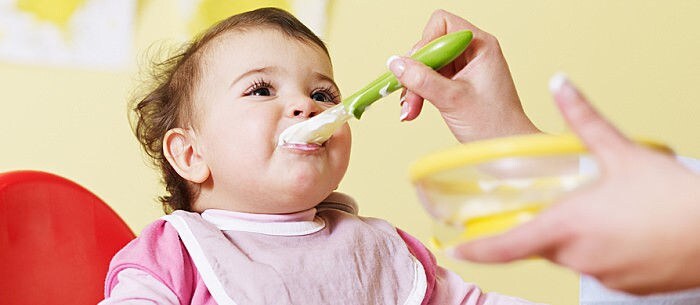Making baby food at home from fresh, organic produce can seem like the ideal way to give your baby the nutrients they need. However, there is a lot to consider. Not only is making your own organic baby food a big task for busy parents, but also it directly affects your baby’s health — and not always in a good way.
To understand the pros and cons of making your own organic baby food, here are some factors to think over:
The Pros:
- No Additional Ingredients
One of the main benefits of making your own organic baby food is that you know exactly what you are feeding your baby – right down to the last ingredient. Unlike jars of baby food, with long (and sometimes confusing) ingredients lists, you are able to directly control the amount of sugar, salt and other additives your baby eats.
- Higher Quality, Lower Cost
Organic baby food is nutritionally superior. When you opt for organic, you’re getting a product that won’t have preservatives or other added chemicals, like pesticides or fertilisers. However, buying jars of pre-made organic baby food can quickly get very expensive. You’ll save money in the long run by buying your own organic produce to make at home.
- Environmental Responsibility
Consider how much baby food one baby will get through – and all the packaging which is thrown away as a result. By making your own organic baby food, customising portion sizes and using reusable containers, you can really reduce your family’s carbon footprint. Additionally, you’re supporting environmental practices by avoiding conventional producers who cover crops with pesticides.
The Considerations:
- Time Investment
It’s true that making your own baby food will take up a lot more of your time than simply adding some jars to your weekly food shop. New parents can be very busy, and this may just take up time that you don’t have. However, by making large batches and freezing the leftovers can save you a lot of time.
- Risk Of Nitrates
Some people say that commercially prepared baby food is safer than its homemade counterpart because producers are required to test for nitrates. Homemade baby food containing spinach, beets, green beans, squash and carrots may contain high levels of nitrates (which may cause anaemia in babies). It is better to use low-nitrate foods like yams, peas and corn for babies under 6 months old.
- No Preservatives
Organic produce means no preservatives – meaning that they spoil more quickly. Therefore, it is important for you to be proactive and organised. You need to have a plan and get into a regular routine of making, freezing and thawing so that fresh food is always ready for your baby.
- Added Pressure
Some parents set the bar so high as to create added stress when it comes to feeding their child. They feel that if they don’t create a complete diet of homemade, organic, well-rounded meals and snacks that somehow they have failed. It’s best to find a happy balance — have nutritional goals, but a little flexibility, too. Don’t stress if making baby food doesn’t fit into your schedule. Do what’s best for your family.
- Freezer Burn
When making baby food in large quantities, be careful not to keep them in the freezer too long. Baby food can be frozen for up to one month max. Keep freezer burn in check by putting small amounts of baby food (about a day’s servings) into freezer-safe bags. Put the date on the bags so you can keep track of how old they are.
The first years are vital for establishing good habits in children, and nutrition is one of the most important aspects. Though you may be inclined to make your own organic baby food, it’s important to consider whether the benefits and cost savings outweigh the time investment and potential risks. Many times the best answer to feeding baby is a combination of homemade food plus purchased food.
In the end, a strong, healthy start and hopefully a lifetime of healthy eating habits will be the result.
* This article is for general informational purposes only. It is not intended nor implied to be providing medical advice and is not a substitute for such advice. The reader should always consult a health care provider concerning any medical condition or treatment plan. Neither Care.com nor the author assumes any responsibility or liability with respect to use of any information contained herein.
